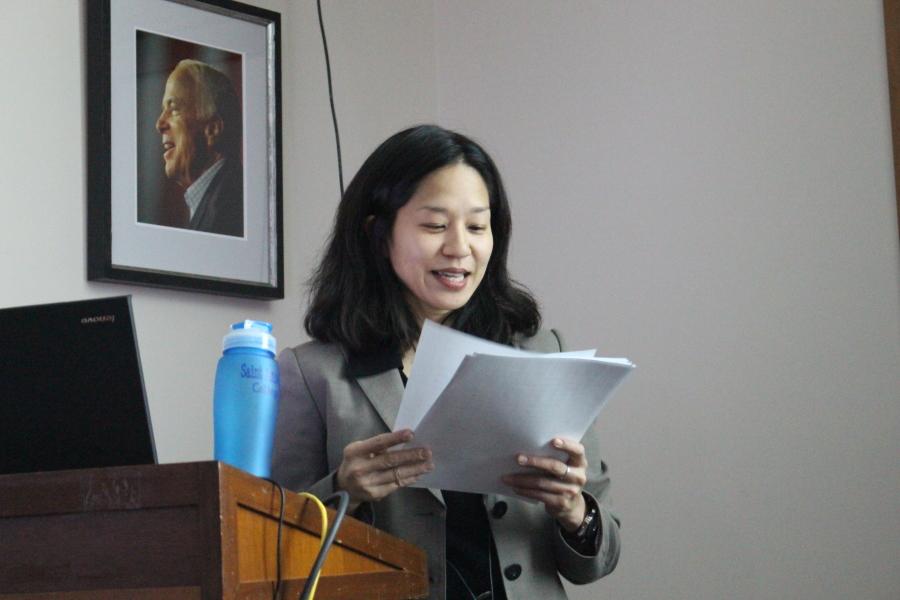Professor’s field work studies Moroccan women’s honor
November 12, 2014
Professor Caroline Wakaba Futamura presented a discussion entitled “Women and Honor in Morocco” at the NHIOP, which applied an analysis of Fatema Mernissi’s semi-autobiographical novel Dreams of Trespass: Tales of a Harem Girlhood to Professor Futamura’s six week field work trip to Fes, Morocco.
In Fes, Professor Futamura learned how to speak Arabic and conducted interviews with eleven Muslim women in order to understand the construct of honor within their lives and society.
This is a central theme in Mernissi’s novel, which partially fictionalizes her own experiences in order to accurately portray the concept of honor in the lives of urban and country Moroccan women.
One notable distinction is the diminished need for country Moroccan women to wear a veil in public, something that is much more prevalent in the city due to increased visibility from men.
Professor Futamura aimed to critique how some Western feminists’ homogenization of Muslim women should take into consideration the societal construction of honor.
This structure creates honor as inseparable from duty to a women’s family and Allah, which ultimately translates into expectations that a women will guard her chastity and maintain proper function of the family home.
At the same time, this concept is growing to bear a certain degree of fluidity.
Due to greater financial need, the stigma behind women educating themselves and seeking employment has become more negotiable.
Additionally, this shift in attitude has shown negotiation in the romantic lives of Moroccan women, as some some families may choose to accept a daughter back into the home if she becomes pregnant out of wedlock.
This is not necessarily a cultural normalcy, and acceptance still necessitates that the woman conceal her pregnancy.
However, this social change is observable, such as some young couples dating and walking in public together when tradition dictates that women may only leave the home while chaperoned by a male relative.
Professor Futamura plans to continue her research in hopes that her findings could change western Feminist conversations and ultimately be applied to the situation of Muslim women in other non-Occidental countries.



